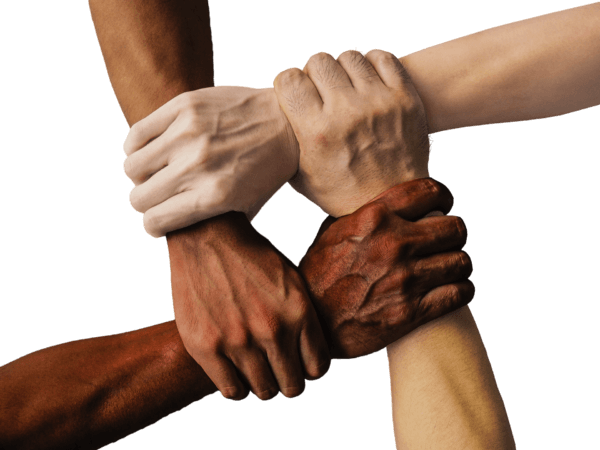Ask the best salesmen what it takes to be a great salesman. They will always tell you that it helps when you really believe in the product you’re selling. What does belief have to do with a sales job? Simple. When salesmen actually believe in the thing they are selling, then the words that come out of their mouths are authentic. When belief enters the equation, passion exudes from the salesman. It is this authenticity that produces the relationships upon which all the best sales organizations are based. What authenticity means is that your Golden Circle is in balance. It means that everything you say and everything you do you actually believe.
Trust begins to emerge when we have a sense that another person or organization is driven by things other than their own self-gain. With trust comes a sense of value—real value, not just value equated with money. Value, by definition, is the transference of trust. You can’t convince someone you have value, just as you can’t convince someone to trust you. You have to earn trust by communicating and demonstrating that you share the same values and beliefs. You have to talk about your WHY and prove it with WHAT you do. Again, a WHY is just a belief, HOWs are the actions we take to realize that belief, and WHATs are the results of those actions. When all three are in balance, trust is built and value is perceived.
Historically, trust has played a bigger role in advancing companies and societies than skill set alone.
Southwest Airlines, a company renowned for its customer focus, does not, as a matter of policy, believe the customer is always right. Southwest will not tolerate customers who abuse their staff. They would rather those customers fly on a different airline. It’s a subtle irony that one of the best customer service companies in the country focuses on its employees before its customers. The trust between the management and the employees, not dogma, is what produces the great customer service. It is a prerequisite, then, for someone to trust the culture in which they work to share the values and beliefs of that culture. Without it, that employee, for example, is simply a bad fit and likely to work only for self-gain without consideration for the greater good. But if those inside the organization are a good fit, the opportunity to “go the extra mile,” to explore, to invent, to innovate, to advance and, more importantly, to do so again and again and again, increases dramatically. Only with mutual trust can an organization become great.
Great organizations become great because the people inside the organization feel protected. The strong sense of culture creates a sense of belonging and acts like a net. People come to work knowing that their bosses, colleagues and the organization as a whole will look out for them. This results in reciprocal behavior. Individual decisions, efforts and behaviors that support, benefit and protect the long-term interest of the organization as a whole.
Charlie Kim, who’s the CEO of a company called Next Jump in New York City, a tech company, makes the point that if you had hard times in your family, would you ever consider laying off one of your children? We would never do it. Then why do we consider laying off people inside our organization? Charlie implemented a policy of lifetime employment. If you get a job at Next Jump, you cannot get fired for performance issues. In fact, if you have issues, they will coach you and they will give you support, just like we would with one of our children who happens to come home with a C from school.
Great leaders are trusted when they sacrifice their time and energy for the goodness of others. Why do so many people have such visceral hatred towards some CEOs, with their disproportionate salaries and bonus structures. It’s not the numbers. It’s that they have violated the very definition of leadership. They have violated this deep-seated social contract. They allowed their people to be sacrificed so they could protect their own interests, or worse, they sacrificed their people to protect their own interests. This is what so offends us, not the numbers. Would anybody be offended if we gave a $150 million bonus to Gandhi? How about a $250 million bonus to Mother Teresa? Do we have an issue with that? None at all. None at all. Great leaders would never sacrifice the people to save the numbers. They would sooner sacrifice the numbers to save the people.
-Simon Sinek, Leaders Eat Last, Start With Why
If this post made you rethink your approach to living life in any way, please do others a service and SHARE the love.
Let’s Foster Critical Thinking.
Read More @ www.borisgodin.com
Follow us on Facebook @ Exploration of Human Condition




